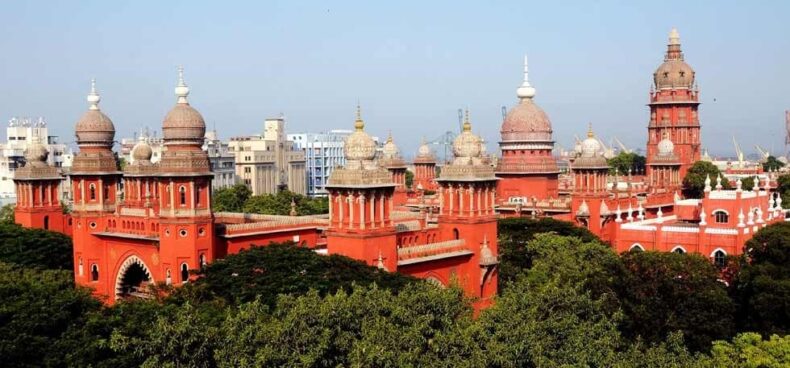
The Madras High Court has ruled that a woman cannot later demand support under the Code of Criminal Procedure (CrPC) if she consents to relinquish her entitlement to maintenance from her spouse and chooses a divorce by mutual consent.
On September 16, Justice Bharatha Chakravarthy issued a ruling rejecting a woman’s revision petition challenging a family court’s refusal to order her ex-husband to pay her a monthly maintenance payment of 1 lakh rupees and to pay a lump sum of 5.80 crore rupees for the treatment of their 35-year-old son.
However, Justice Chakravarthy maintained the family court’s ruling requiring the spouse to provide an increased monthly maintenance payment of 80,000 to the kid who has ‘Refractory Seizure Disorder’ and other related medical conditions.
The woman requested that the family court order denying her maintenance be overturned, and the husband requested that the family court order requiring him to pay his son 80,000 instead of the current 20,000 be stayed. The court was currently hearing both revision petitions.
By mutual consent and in accordance with Section 13B of the Hindu Marriage Act, the couple divorced in 2005. The spouse agreed to provide for his son fully while he was in his custody at the time. At the time, the wife renounced her claim to maintenance, declaring that her only need was for someone to take care of her son.
But in 2011, the son’s mother was granted custody, saying that the father had broken his promise to care for his son and had instead secured his admission to a hospital.
The wife argued in front of the High Court that she had waived her maintenance rights in the belief that the father would continue to provide for the son’s needs. But to her amazement, she claimed, the father had “dumped” the son in the aforementioned facility.
The husband, however, countered that the wife could not now request maintenance because she had previously renounced her claim to it.
The Court stated that while a divorced wife had a right to support, Section 125(4) of the CrPC made it clear that a woman was not entitled to receive maintenance if she was living separately from her husband by mutual consent. The Court underlined the following in reference to the ruling in the petition for mutual consent:
“Second, the default position is addressed in the judgement of the petition for mutual consent. Therefore, in that view of the matter as well, which is also the mother’s own doing in agreeing for such arrangements, the contention cannot be accepted. If the father has not taken care of the son and if the mother takes custody of the child, then the maintenance is payable only to the child.”
The Court also declined to order the husband to pay a flat payment of 5.8 crore rupees for their child’s medical expenses, stating that it could not be determined that he was financially able to do so.
In addition, it was not possible to hold that the wife’s allegation that medical competence was higher and treatment risks were lower in the United States was an important necessity.
The verdict stated, “This Court cannot hold treatment in the United States of America as an essential requirement where the same is available with proper specialists in India itself, though not to the same degree as in the United States of America as per the mother’s perception.
In person, the wife appeared, and the husband was represented by Advocate N Manoharan.













